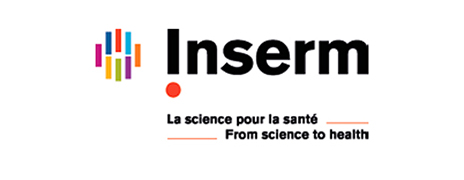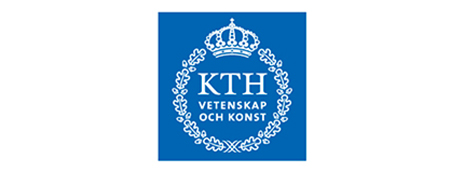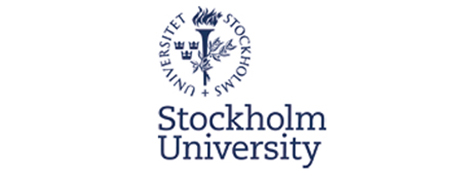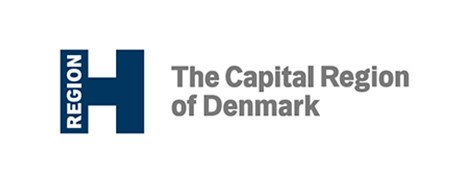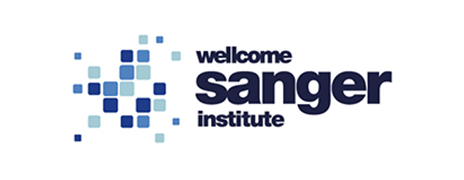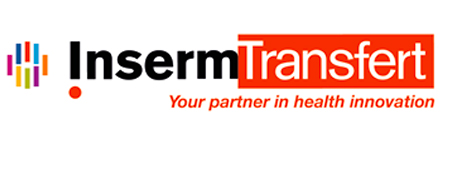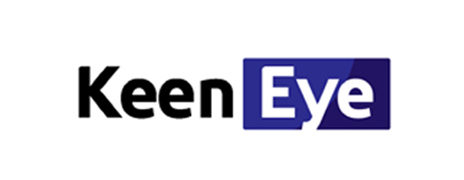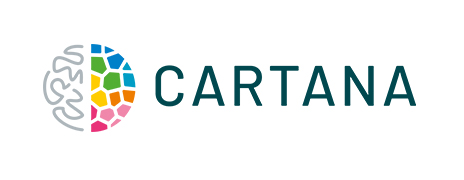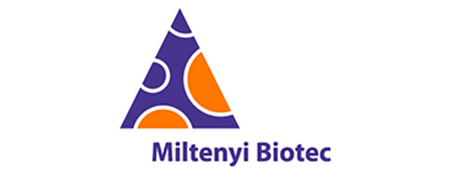
Institut National de la Santé
et de la Recherche Médicale
The Institut national de la santé et de la recherche médicale is the only public sector research organization in France exclusively dedicated to human health. Inserm has a budget of M€998 and employs 15,000 scientists, engineers and technicians all with one shared objective: promoting health by advancing knowledge about living organisms and their diseases, developing innovative treatment modalities and conducting research on public health.
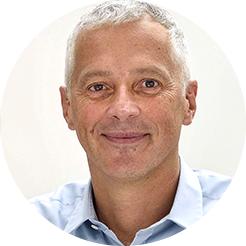 Alain Chedotal
Alain Chedotal The team leader, Alain Chédotal (PhD), is Research Director (DRCE) at Inserm and group leader at the Institut de la Vision (IdV) in Paris.
He received his PhD degree from Pierre & Marie Curie University in Paris and moved to UC Berkeley, for a postdoc with Corey Goodman, where he worked on axon guidance. He was recruited at INSERM in 1997 and started his own laboratory at the Salpêtriere Hospital in Paris before moving to IdV in 2008.
His lab studies axon guidance, neuronal migration and angiogenesis and has pioneered the use of tissue-clearing methods and light sheet microscopy to study embryogenesis.
In addition to HUGODECA, he is the coordinator of HUDECA, a state-of-the-art INSERM interdisciplinary program whose goal is to build a definitive atlas of embryonic and fetal human cell types. He was elected at the Academia Europaea, the French Academy of Sciences and EMBO and is a member of the European Dana alliance for Brain Initiatives (EDAB).
He is also president of the scientific council of the Fondation pour la Recherche Médicale (FRM).
Research team members involved in HUGODECA
- Yorick Gitton (PhD; CNRS researcher)
- Elisabeth Dupin (Research engineer)
- Chad Moore (Post doc)
- Edwin Hernandez (Post doc)
- Raphael Blain (PhD Student)
- Anais Favre (Technician)
- Ali Abjaghou (Technician)
WPs
- WP1: Single-cell profiling of developing human gonads
- WP2: Spatial transcriptomics of developing human gonads
- WP3: Spatial determinants in gonadal development and sex determination
- WP4: Integrating OMICS data into an annotated atlas of human developing gonads
- WP5: Effects of intrinsic and extrinsic alterations on human gonad development
- WP6: Dissemination and Communication, IP management and exploitation
- WP7: Knowledge, data and software management plan
- WP8: Project management and coordination
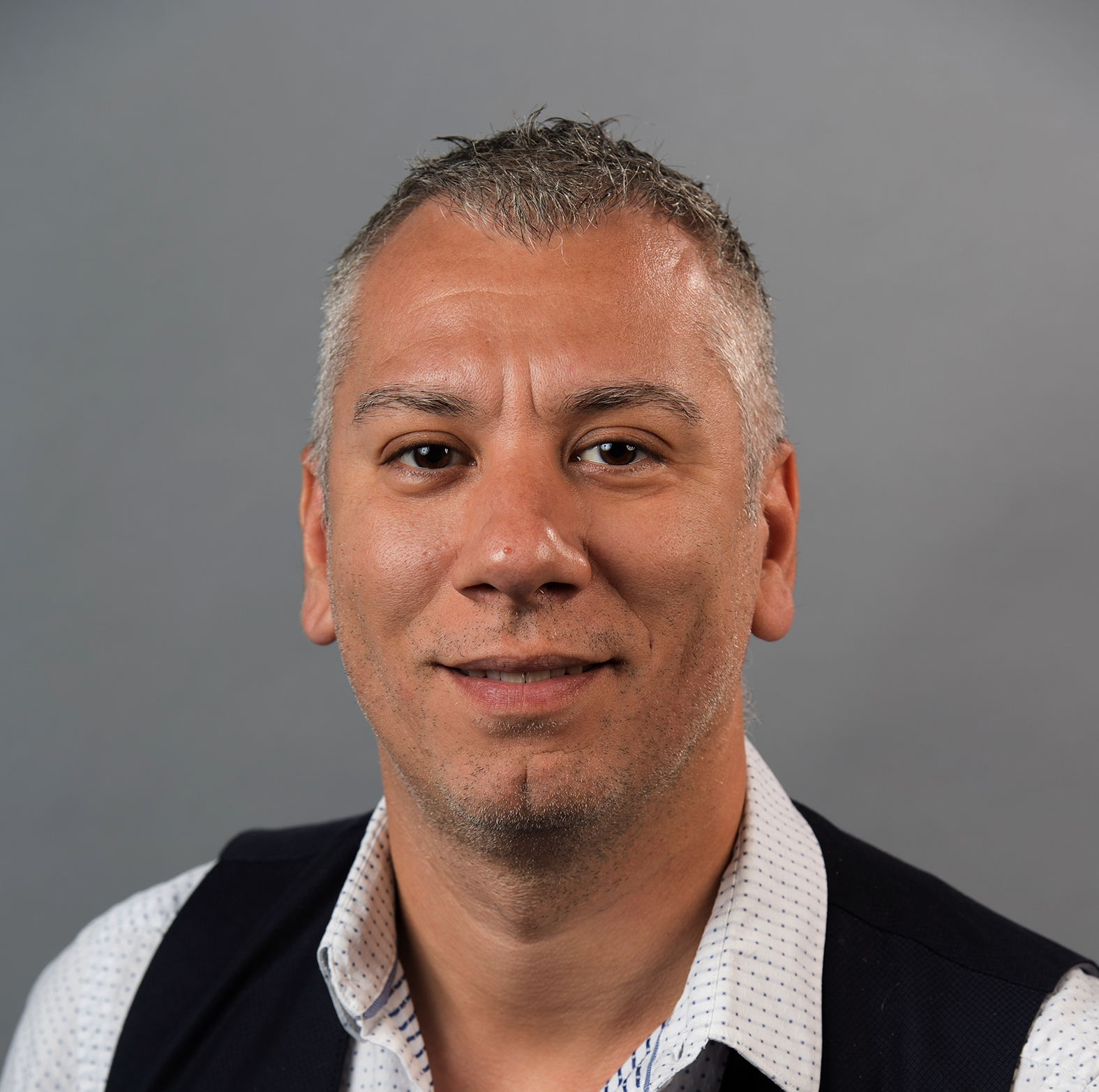 Paolo Giacobini
Paolo Giacobini The team leader Paolo Giacobini (PhD), is a Research Director at the Inserm and a Group leader of a research team. During the last 15 years, combining mouse genetics with cutting-edge imaging techniques, in vivo physiological manipulations, and translational clinical research, Dr. Giacobini made important contributions in understanding the ontogeny, neuronal migration and function of a small population of hypothalamic neurons regulating fertility in all vertebrate species, namely the Gonadotropin Hormone Releasing (GnRH) neurons. He received an ERC-Consolidator Grant in 2016 (REPRODAMH) to dissect the origin of Polycystic Ovary Syndrome (PCOS), the most frequent infertility cause in women. Dr. Giacobini has been a member elected of the Administrative Council of the French Neuroscience Society (Société des Neurosciences, 2015-2019) and of the French Neuroendocrine Society (Société de Neuroendocrinologie, 2016-2019). He is a member of the Board of Directors of EUCRE (European Center for Reproductive Endocrinology).
Research team
- Sophie Catteau-Jonard (MD/PhD)
- Anne-Laure Barbotin (MD/PhD, Associate Professor)
- Cécile Allet (PhD, Research assistant)
- Gaétan Ternier (PhD Student)
- Audrey UK (MD, PhD student)
- Gaspard Delpouve (lab technician)
- Amandine Legrand (lab engineer)
WPs
- WP3: Spatial determinants in gonadal development and sex determination
- WP4: Integrating OMICS data into an annotated atlas of human developing gonads
- WP5: Effects of intrinsic and extrinsic alterations on human gonad development
- WP6: Dissemination and Communication, IP management and exploitation
- WP7: Knowledge, data and software management plan
- WP8: Project management and coordination
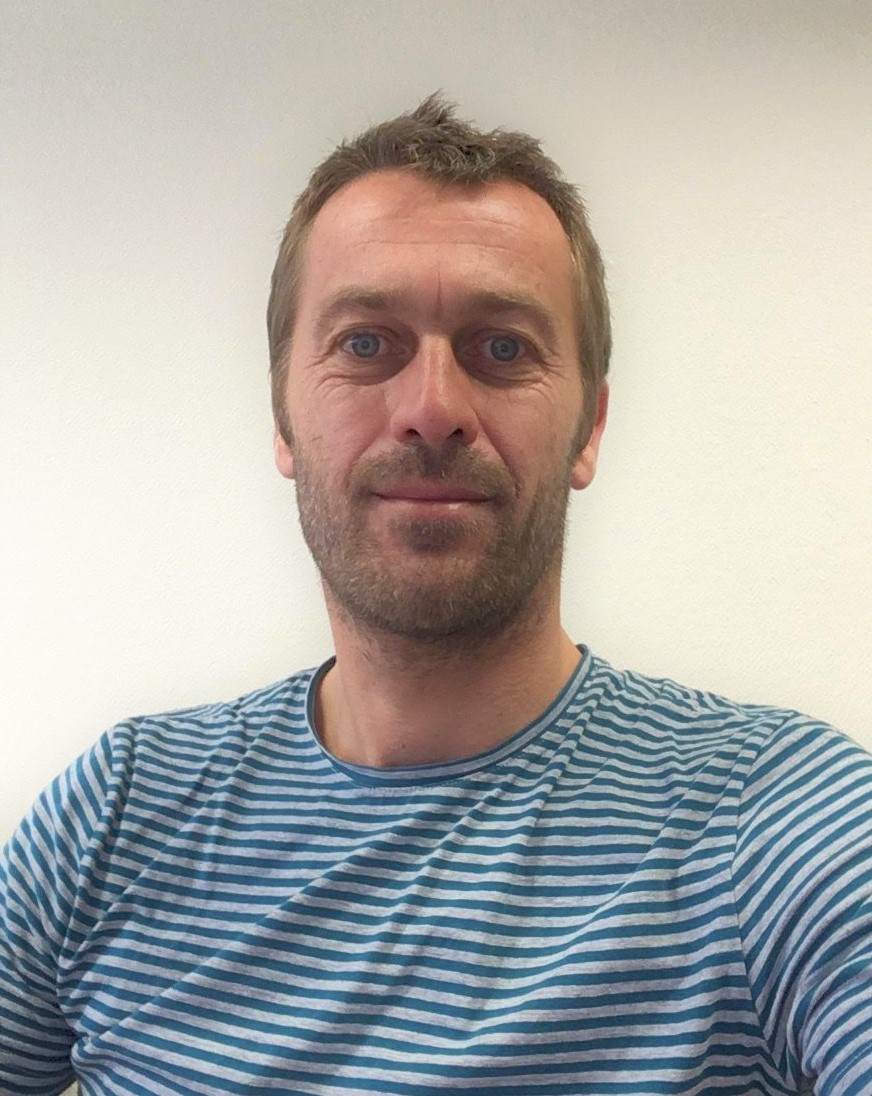 Antoine Rolland
Antoine Rolland The team leader, Dr Antoine Rolland, is associate professor at University of Rennes 1. During his young scientific career, he took advantage of high-throughput technologies to uncover fetal germ cell differentiation as well as spermatogenesis and its regulation by androgens. Together with Frédéric Chalmel, he now heads a genomic and bioinformatics research group dedicated to studying reproductive biology and the impact of xenobiotics on human gonad development and functions. Their current researches notably focus on the setting-up and analysis of single-cell RNA-seq and ATAC-seq to investigate cell fate specification and differentiation pathways underlying human fetal gonad development. They also develop and maintain bioinformatics tools for data analysis and dissemination such as the ReproGenomics Viewer (https://rgv.genouest.org/).
Research team
- Dr. Frédéric Chalmel (Inserm researcher, PI),
- Dr. Séverine Mazaud-Guittot (Inserm researcher, PI)
- Dr. Aurélie Lardenois (Associate professor), Single cell data analysis
- Dr. Laurence Noël (Engineer, HUGODECA grant), Data management
- Paul Rivaud (Engineer, HUGODECA grant), Single cell data analysis
- Edith Chan Sock Peng (PhD student), Single cell data analysis
- Aurore Besson (Engineer), Single cell experiments and data analysis
- Maryne toupin (Engineer), Organ collection and single cell experiments
WPs
- WP1: Single-cell profiling of developing human gonads
- WP4: Integrating OMICS data into an annotated atlas of human developing gonads
- WP5: Effects of intrinsic and extrinsic alterations on human gonad development
- WP6: Dissemination and Communication, IP management and exploitation
- WP7: Knowledge, data and software management plan
- WP8: Project management and coordination
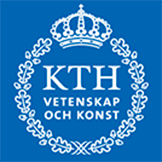
Kungliga Tekniska Hoegskolan
KTH Royal Institute of Technology in Stockholm has grown to become one of Europe’s leading technical and engineering universities. KTH is Sweden’s largest technical research and learning institution and home to students, researchers and faculty from around the world. KTH’s research and education covers a wide area including natural sciences and all branches of engineering, as well as in architecture, industrial management, urban planning, history and philosophy.
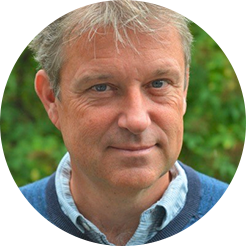 Joakim Lunderberg
Joakim Lunderberg The team leader, Joakim Lundeberg, is a Professor in Molecular Biotechnology, Head of Department of Gene Technology, Director of the National Genomics Infrastructure at Science for Life Laboratory (SciLifeLab). He has published more than 250 peer-review scientific articles with H-index of 71 and over 23 000 citations. He is a pioneer of the Spatial Transcriptomics technology.
Research team
- Michaela Asp (PhD)
- Reza Mirzazadeh (Research engineer)
- Ludvig Larsson (PhD student)
WPs
- WP2: Spatial transcriptomics of developing human gonads
- WP6: Dissemination and Communication, IP management and exploitation
- WP7: Knowledge, data and software management plan
- WP8: Project management and coordination
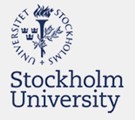
Stockholms Universitet
Stockholm University (SU) is one of the world’s top 100 higher education institutions, with over 34,000 students, 1,600 doctoral students and 5,000 employees. It is the region’s center for higher education and research within science, the humanities and the social sciences. At Stockholm University, teaching and research are carried out at the highest level. The University participates in regional, national and international collaboration. Several world-leading researchers work here (5 Nobel Prizes over the years). Stockholm University has a long experience of working with European programs on doctoral level.
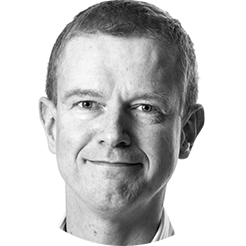 Mats Nilsson
Mats Nilsson The team leader, Mats Nilsson (PhD), is a Professor of Biochemistry at Stockholm University, and Scientific Director of SciLifeLab in Sweden. He has pioneered the development of the padlock and selector probes and Rolling Circle Amplification technologies. He is the co-founder of the following companies – Parallele (San Francisco, acquired by Affymetrix), Halo Genomics (Uppsala, acquired by Agilent), Q-Linea (Uppsala), OLink Bioscience (Uppsala), EMPE (Stockholm), Cartana (Stockholm), all spun out of his lab. The technologies are used for massively parallel targeted genotyping and sequencing, diagnostics of infectious diseases and RNA in situ analysis.
Research team
- Daniel Gyllborg (PhD)
- Marco Grillo (PhD)
WPs
- WP2: Spatial transcriptomics of developing human gonads
- WP4: Integrating OMICS data into an annotated atlas of human developing gonads
- WP6: Dissemination and Communication, IP management and exploitation
- WP7: Knowledge, data and software management plan
- WP8: Project management and coordination

Region Hovedstaden, Rigshospitalet,
Department of Growth and Reproduction
The Department of Growth and Reproduction (GR), is a highly specialised Department at Rigshospitalet (Copenhagen University Hospital). Rigshospitalet is the major hospital affiliated with University of Copenhagen, but is in terms of administration, part of The Capital Region of Denmark (Region H). The primary function of The Capital Region, as with all five regions of Denmark, is to own and operate the hospitals of the region. Rigshospitalet is one of the largest hospitals as well as the most highly specialised hospital in Denmark.
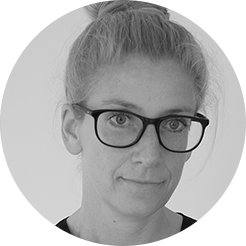 Anne Jorgensen
Anne Jorgensen The team leader, Anne Jørgensen (MSc, PhD), is a Senior scientist at Department of Growth and Reproduction, Rigshospitalet. She is group leader working in developmental and reproductive biology, focusing on the regulatory principles governing gonadal sex differentiation in humans, with the aim of characterizing the molecular events causing differences of sex development (DSD). She is an expert in ex vivo culture of human primary tissue and has established protocols to culture both fetal tissue (testes, ovaries, adrenals and kidney) as well as adult tissue (testes, kidney and testicular germ cell tumours).
Research team
- Anders Juul (MD, DMSc, PhD)
WPs
- WP5: Effects of intrinsic and extrinsic alterations on human gonad development
- WP6: Dissemination and Communication, IP management and exploitation
- WP7: Knowledge, data and software management plan
- WP8: Project management and coordination

Genome Research Limited –
Wellcome Sanger Institute
The Department of Growth and Reproduction (GR), is a highly The Wellcome Sanger Institute is a not-for-profit research organisation and is one of the world’s leading genome centres. It shares the aims of its major funding agency Wellcome of improving human and animal health. It is run by the charity Genome Research Limited (GRL). The Institute’s defining characteristic is that it conducts biomedical research on a scale that few other organisations can match. Institute researchers and their collaborators capitalise on high-throughput pipelines and the Institute’s skills in DNA sequencing, and cellular genetics such as the Human Cell Atlas to produce new understanding and resources that are widely shared with the worldwide research community.
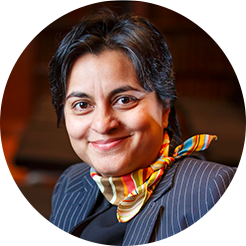 Muzz Haniffa
Muzz Haniffa The team leader, Muzlifah Haniffa (MD, PhD) is a Wellcome Senior Clinical Research Fellow, Professor of Dermatology and Immunology at the University of Newcastle and Associate Faculty at the Wellcome Sanger Institute. She co-leads the Wellcome-funded Developmental Cell Atlas and Skin Cell Atlas in the UK. She is an author of 67 publications and h-index of 34.
Research team
- Sarah Teichmann (PhD)
- Roser Vento-Tormo (PhD)
WPs
- WP1: Single-cell profiling of developing human gonads
- WP3: Spatial determinants in gonadal development and sex determination
- WP6: Dissemination and Communication, IP management and exploitation
- WP7: Knowledge, data and software management plan
- WP8: Project management and coordination

Inserm Transfert SA
Founded in 2000, Inserm Transfert SA is the private subsidiary of the French National Institute of the Health and Medical Research (Inserm), dedicated to technology transfer (from invention disclosure to industrial partnership). Inserm Transfert runs a comprehensive set of technology transfer activities from classical value chain activities to unique solutions
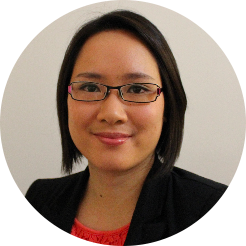 Thien-Ly Pham
Thien-Ly Pham The team leader, Thiên-Ly Pham (MSc, PhD), is a European project manager. She specialized in biomedical engineering with an MSc in Medical Diagnostics degree in England, and a PhD in medical imaging in France. She worked at LNE/G-Med as a Certification Project Manager for in vitro diagnostic medical devices. She went into the field of international cooperation in research and higher education and worked as a scientific officer at the French Embassy in Sweden for two years, then as a European affairs officer at Inserm. She managed the subproject “Cognitive architectures” within the Human Brain Project, a European Commission Future and Emerging Technologies Flagship for 3 years at CEA (French Alternative Energies and Atomic Energy Commission). She joined Inserm Transfert in 2016 and is currently managing two H2020 projects.
Research team
- Dahlia Tsakiropoulos, Senior Project Manager
WPs
- WP6: Dissemination and Communication, IP management and exploitation
- WP8: Project management and coordination

KEEN EYE
Keen Eye is a health tech company, building machine learning technology for translational and clinical research, with a focus and a ‘keen expertise’ on imaging data. Thanks to our technology, we allow physicians and biologists to reproduce and share their visual expertise, saving valuable time in day-to-day decision-making, whether it’s diagnosing, detecting disease, or evaluate the effectiveness and/or toxicity of drugs, in a more precise and standardized way. Our clients and partners are CROs, biotech / pharma, hospitals and research tool manufacturers for the life sciences.
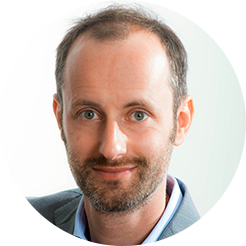 Sylvain Berlemont
Sylvain Berlemont The team leader, Sylvain Berlemont is the founder and CEO of Keen Eye. He has been laureate of the Concours à l’Innovation Numérique from BPIFrance for a deep-learning solution to assist in the detection of cervical cancer in pathology slides. Prior to Keen Eye, Sylvain Berlemont began his career as a postdoctoral fellow, first at the Scripps Research Institute, San Diego CA (2009), and Harvard Medical School, Boston MA (2011). He holds a PhD degree in biomedical image analysis from Pasteur Institute (2008), Paris, and a computer science degree from EPITA (2004). During his PhD, Sylvain focused on the development of new algorithms to detect and analyze fluorescent patterns on single DNA molecule.
Research team
- Hippolyte Heuberger, Head of Data Science
WPs
- WP4: Integrating OMICS data into an annotated atlas of human developing gonads
- WP6: Dissemination and Communication, IP management and exploitation
- WP7: Knowledge, data and software management plan
- WP8: Project management and coordination

Cartana AB
CARTANA is a spin-off company from the SciLifeLab in Stockholm, offering reagent kits, probe panels and service for in situ sequencing (ISS), a targeted spatial gene expression analysis in tissue samples that allows analysis of hundreds of genes with single cell resolution and cell type map generation. CARTANA has competence in highly multiplexed in situ analysis, image and data processing and cell type mapping.
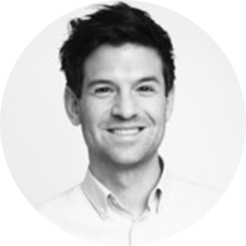 Malte Kuhnemund
Malte Kuhnemund The team leader, Malte Kühnemund (main founder, EVP and Head of R&D), has a PhD in molecular medicine. He has extensive experience in nucleic acid analysis and RCA-based assays. He received his PhD degree from Uppsala University in Sweden. During his PhD, Malte focused on developing sensitive nucleic acid detection methods for infectious disease diagnostics and configuring them into easy-to-access format, e.g. using a mobile phone as read-out.
Research team
- Xiaoyan Qian (PhD, Senior Scientist R&D)
- Ivan Hernandez (PhD, Senior Scientist R&D)
WPs
- WP2: Spatial transcriptomics of developing human gonads
- WP6: Dissemination and Communication, IP management and exploitation
- WP7: Knowledge, data and software management plan
- WP8: Project management and coordination
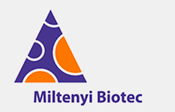
Miltenyi Biotec B.V. & Co. KG
Since its foundation in 1989, Miltenyi Biotec (MB) has become one of Germany’s most successful biotechnology companies with currently 3000 employees worldwide. Miltenyi’s multidisciplinary R&D department, consisting of 600 scientists, technicians and engineers, is constantly developing novel reagents and instruments for use in immunology, cancer, neuroscience, stem cell and molecular biology. For technical support and overnight delivery of its products, Miltenyi has more than 30 sales offices and distributors in the leading industrial countries.
Miltenyi’s Magnetic Cell Sorting Technology (MACS® Technology) has evolved to an established standard method in research and clinical approaches such as cellular immunotherapy or regenerative medicine. Miltenyi Biotec develops, produces and markets more than 17,000 state-of-the-art products and services focusing on sample preparation, cell separation, cell culture, flow cytometry, microscopy as well as clinical applications in the field of cell therapy.
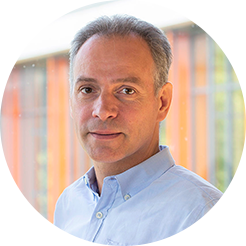 Andreas Bosio
Andreas Bosio The team leader, Andreas Bosio, was trained in chemistry, biochemistry and neurobiology. A. Bosio is Head of the Department of Molecular Technology & stem Cell Therapy in Miltenyi Biotec‘s R&D department. His department is divided in six groups dedicated to research and development in the field of stem cells, neuroscience and cancer towards new therapeutics for regenerative medicine and cancer treatment as well as technological development in the field of microscopy, cell manufacturing and sample preparation.
Research team
- Silvia Rüberg
- Sandy Reiß
- Melanie Jungblut
- Werner Müller
WPs
- WP1: Single-cell profiling of developing human gonads
- WP3: Spatial determinants in gonadal development and sex determination
- WP4: Integrating OMICS data into an annotated atlas of human developing gonads
- WP6: Dissemination and Communication, IP management and exploitation
- WP7: Knowledge, data and software management plan
- WP8: Project management and coordination

